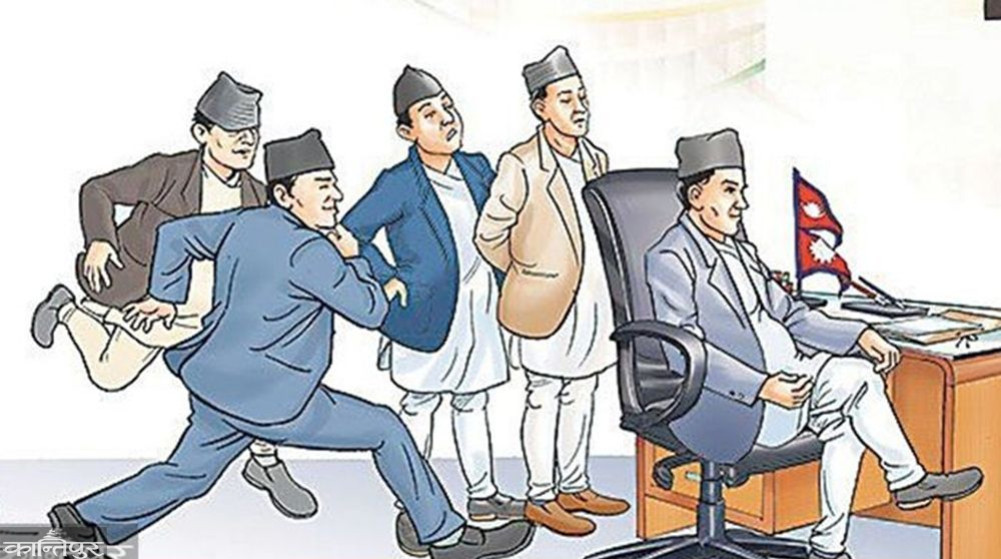'Father! The song is in the village.
We use Google Cloud Translation Services. Google requires we provide the following disclaimer relating to use of this service:
This service may contain translations powered by Google. Google disclaims all warranties related to the translations, expressed or implied, including any warranties of accuracy, reliability, and any implied warranties of merchantability, fitness for a particular purpose, and noninfringement.


In the sky when you go, in the box when you come...
There is no foreigner, just the hope of returning
What's going on and life is just a handful of breath



These lines of the song 'Bolmaya' composed with words, music and direction by
singer Prakash Saput reflect a terrible restlessness and a sadness as deep as the blue sea. The poet is amazed by the world surrounded by sorrows and the stream of tears and is asking the question in the rhythm of the music - What is life?
Nepali society's foundation-reality is found in this lyricist's brainstorming in a serious discussion-representative rage of the youth and the fear of this empire. So he is not a singer of anger and resentment, but a singer of compassion and love. Compassion and hope are his brands. Let's take a journey with this branded singer through the ups and downs of his life. And, let's take a look at the life of his mother Meenakumari Vick (55) from that journey-story, where there is a magnificent wall of discrimination standing and a shadow under the wall - his mother.
•••
has a long list of songs and singers. Saput's songs are attractive and different in that group. Softer than others, responsive to society, emotional and loving too. His songs are on the menu, much talked about, highly preferred 'hit' numbers - 'Galbandi', 'Peer', 'Damai Maharaj'.... These 'Kamlo' singers continue to sing - 'Timro Maya Maye Malai Peer Diyo/Kamlo Mutu, Kamlo Chirido,' which is mesmerizing the Nepali audience and society. For a long time, the society has been shaken by the debates about his songs and scenes, telling rosy stories while wearing fullbutte neckbands, narrating Pardeshi-Peer or lying like a corpse inside a wooden box.
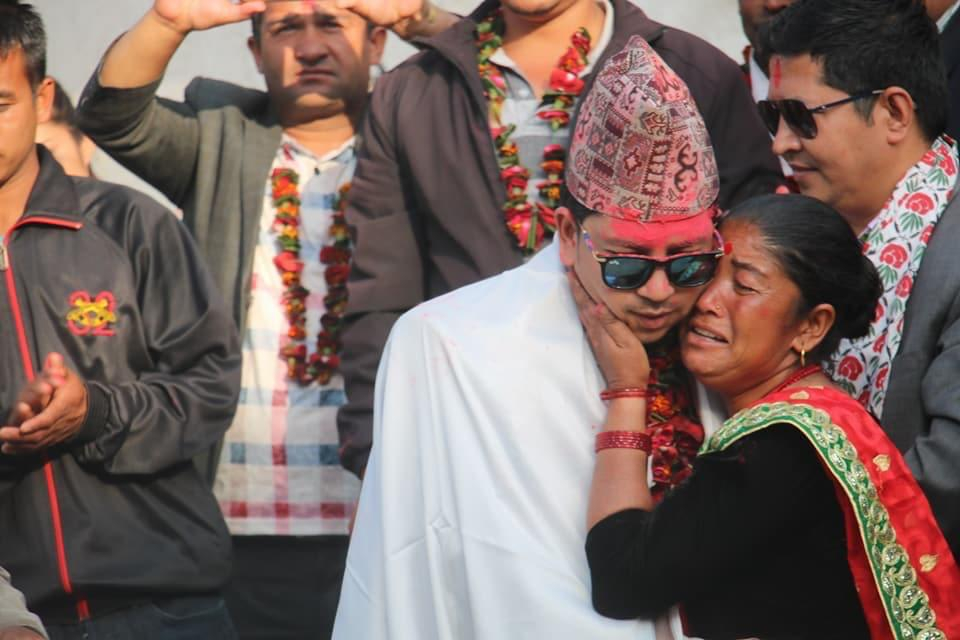
His mother is the inspiration for his songs, which focus on unique word choices and specific problems of Nepali society. With a special signature in the song, this singer of deep feeling and infinite pain is narrating the story of his own character in a very emotional mood as if reciting poetry, where there are clear colors of his mother's sorrow. Now no mother should see those colors of sorrow, let the colors of light be the lives of mothers. Don't let mothers feel that life is only suffering.'
•••
To know the picture, status and real dimensions of Nepali society, you should read the life stories of poor and Dalit mothers in rural areas. Being a single mother and being a Dalit mother makes a huge difference in Nepali society. The struggle of a Dalit mother's life is completely different from that of 'others'. 'My mother is a real face of this country', along with the mother-story, the image of discrimination comes in the memory of the son, 'My mother suffered discrimination all her life. He suffered extreme poverty, always crying tears of sorrow. What more can a mother suffer in a single lifetime?' An evening of black and white – the color is grey. And, popular commentary says - black is the color of sadness and darkness. Prakash Saput said in his own words, "There is no gray color in my mother's life, nor the clean and white color of happiness, while crossing the zebra-cross one evening in the month of August when the sky was covered with fog." There is only the black color of sorrow. There is sadness, harassment and only harassment.' 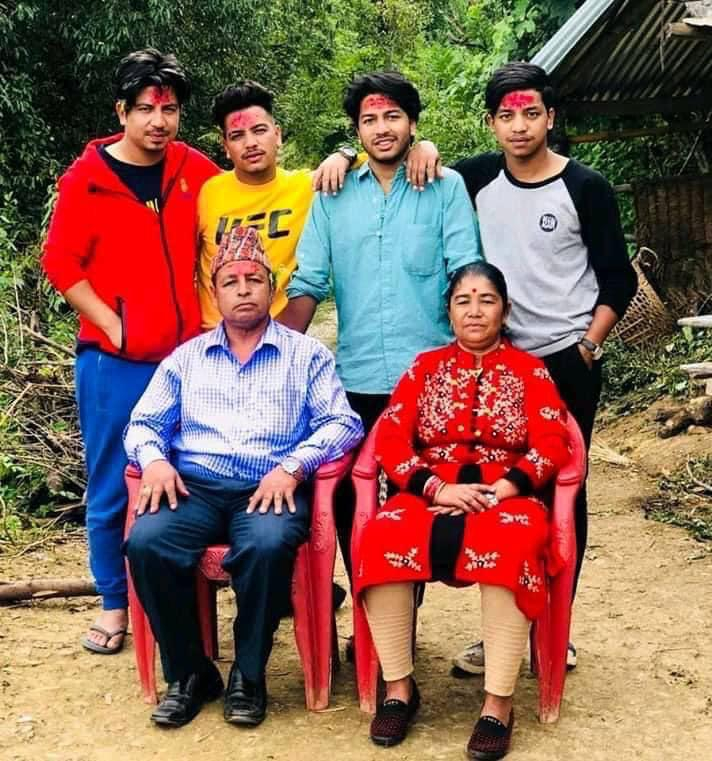
When he turns the pages of his mother's life's 'forbidden' diary, he is saddened. He sighs like a prayer to the soul, 'Oops, where did it come from?' There is a line in his song 'Mero hain har yo desh?' What is happiness for us?' As if the son fulfilled the responsibility of his son, just like in the song of his mother's life. Yes, the life of Bal Bahadur Wik, the father of the son, went "sorrow after sorrow" and his mother's "mowing after cutting". My father had migrated to India to work for a better life. He is the eldest of four siblings – Saput. Baa came to India when he was very young. Saput spent his early childhood in Delhi. Later mother and he returned to the country, father remained there. Prakash's mother used to say, 'You know boy, staying in Delhi was more beautiful than here because nobody touched us there.'
After the grandfather separated his son, the son's father, Bal Bahadur, fell to Goth. Cows sat on dung and straw on one side of the barn, next to it was a hot stove that kept burning. (Actually, the famous poet Balakrishna Sam wrote an epic poem about a Dalit's stove - 'Chiso Chulho', which tells the story of Sante, who loves Gauri of a regional family and earns a living by sewing clothes.) The scene of mother and son humming till midnight near 'Tato Chulho'. It is still fresh in Saput's mind. Brothers are young, father is abroad! Perhaps that is why Saput felt responsible from an early age. A practical relationship was established between mother and me. I was like the second man of the house,' says Saput.
What Prakash's mother and all rural Dalit mothers experienced in life is a different picture of Nepali society, which does not go parallel to other mothers. Although in the same environment, her mother was at that point, where other mothers and her life were separated, like oil and water. Mother's life was a yoga of many curves.
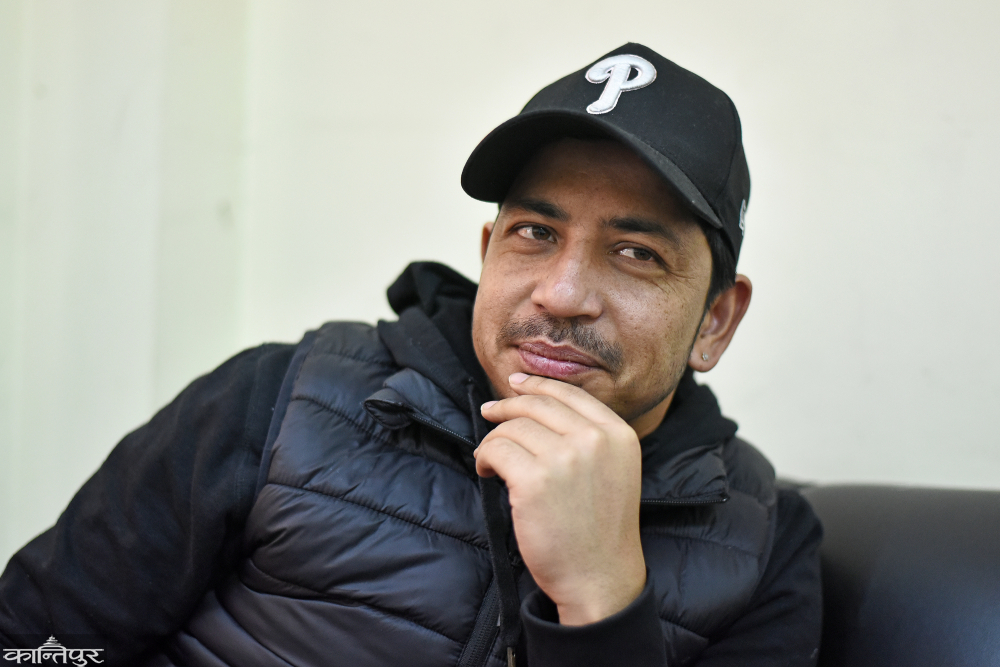
Son's mother was a child of Lahure, father was a constable from Baglung Bihun. His mother got married in Kalilai. The son always feels - looking at the graph of his mother's life, she never got happiness. After getting married and reaching Dhamja, Kanthekhola, another corner of Baglung, more sorrow was added. Meenakumari's father-in-law, Aran, used to run the work given by the caste system and used to collect chickens and chickens from all over the village without taking money. He entrusted his daughter-in-law with the task of going to the village to pick the crops once a year because of the hunger. Lahure's daughter was able to visit the houses of the villagers. The humiliation of picking the crop and the tears it gave her, made her melt. Saput's father, though different, did not drive the aran, instead went to Mughal to work. After that, the mother did not have to pick the crops.
Saput feels that his mother was independent. Father stayed in Delhi for a long time, mother took care of the household alone. Raising children, cutting grass, going to fairs etc. were his village chores. Prakash has seen many ups and downs in his mother's life and the discrimination she has faced. He says, 'Differences now become incidents and come out. However, the discrimination of enjoyment was natural for our mothers, it was not an incident. She was used to the unspoken rules of society. Grandfather was a famous bhajan singer of the village, he used to recite Ramayana in bhajan. In the memory of Saput, he repeats those hymns in the evening, "I have not read the story of Ramsita, but I remember all the stories because my grandfather read them in verses." I heard in the hymn - the story of Radhakrishna, the sermon given by Krishna in the Mahabharata.'
Grandfathers used to sing folk songs that had never been heard, mothers had recorded songs! Together with non-Dalits when singing, but separately when eating. In the winter, the village used to go somewhere far away for a forest feast, where the mother could not cook. Even in forest feasts, they had to sit and eat separately. Mother should have accepted the discrimination. Mother was never allowed to enter the house of Brahmin-Damli, who used to go to cut grass together in Bhir, held Armparam-Melapat. A clear picture was created, Dalits were not allowed in the house of Brahmins, there was another layer even within Dalits. They say, 'We lived at that level and our mothers also lived at that level. Man! Let's not talk about one incident, mother lived in discrimination and humiliation all her life. There was always a wall of separation, that wall could not exceed the practical wall.'
His mother was separated in the stream, separated in the temple! According to Saput, it was not an 'incident' but a series of separations and that was a natural course of events for the mother! Mother used to get up early, go to the stream to fill water before the villagers. The non-Dalit also came to know and asked - why did they fill the water before us? And he issued a warning - fill the tank only after we have filled it! After that, Meenakumari's turn to fill the water came last.
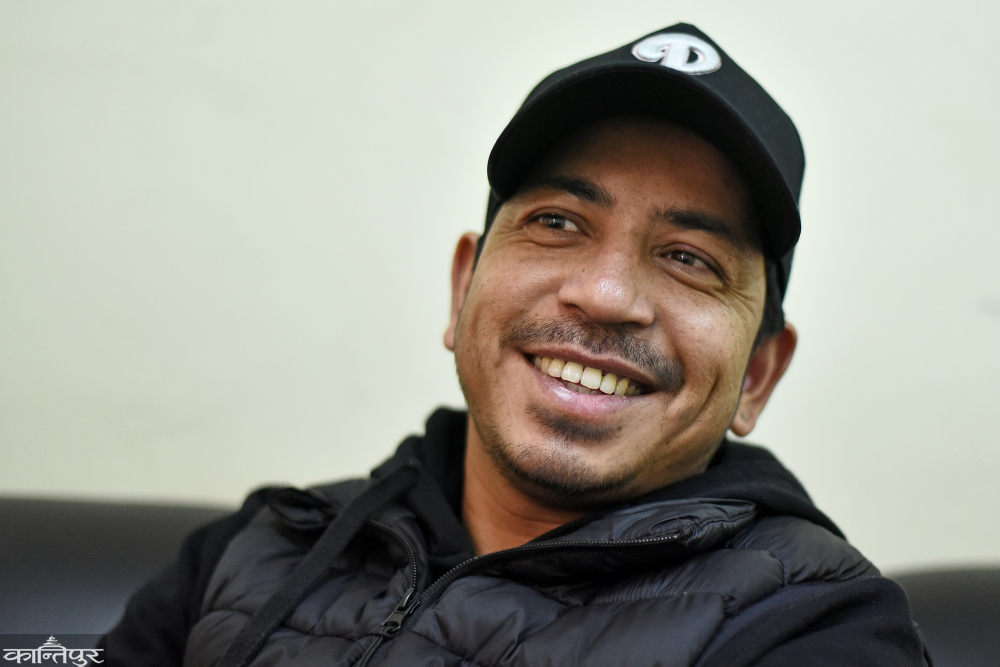
Meenakumari started getting drunk at the expense of others, but even the wine in her hand did not work for the villagers. She sold the liquor through a non-Dalit friend. However, the friend also did not drink alcohol inside the house, she sold it to the generation saying "I did it". "I was born in a society with such a dual mentality, where we also had love for poverty, but I grew up as a child." saying 'My father's life was spent in that dual practice', says Saput like the sigh of a rehearsed fiddle in solitude.
•••
Saput, who once sang the double battle 'Ayo Tero Sir, Bato Kheali Gar', has recently sung a new song - 'Mutu Katakkai'. The song says, 'Don't love someone deeply, it's going to be a landslide in the heart. But, when the mother was in the village and her heart was eaten by the sight of the mother, she used to go to Dhamja with the usual hair ache. He says, 'Because of his deep affection for his mother, he used to go to the village to search for the stories of the songs.' Dancing in that memory, some heart-wrenching stories too. Like the government used to distribute lunch to schools through some scheme. Dalit students were made to stand in a separate line and served lunch. When he was young, he was devastated by that scene and after returning home, he asked his mother, 'Mom, why are we separated?' The mother said, 'Because we are Dalits.' That's when he realized - we are separated. Mysterious stories of ghosts living near Besaram bushes, stories of prince's talisman, told by my mother sitting around the blanket in the heart-shaking winter, and heard from others, taught the son to be imaginative. Angena's burning fire is probably influenced by the song sung by her mother, she thinks, "As many stories as I have told through songs, it is the story told by my mother-grandmother." He sings the sorrows and sighs of foreigners in a clear song like
. He says, 'Half of that story is from my house. How did mother feel when father was abroad? How did you remember your father? How stressful was his life? How dull was it? How did mother keep counting the days of father's phone call? And how many days after receiving the call, his face would be happy? The story I tell in the song is not the same.'
Father used to come home once in 4/5 years. That time was not like now. There was no telephone in the village, there was another village far away - CDMA. Someone would bring the phone notification and he still remembers the light that he saw in his mother's eyes that day. He sees his mother in two ways - a woman and a common Nepali woman. There was a mother group in the village. The mothers of the group used to gather in the evening and sing songs. Some of the money raised was spent on food and entertainment, some was kept in the treasury. Mothers of the group sang songs to celebrate when someone gave birth or when someone's son was born, with the radio humming on their shoulders.
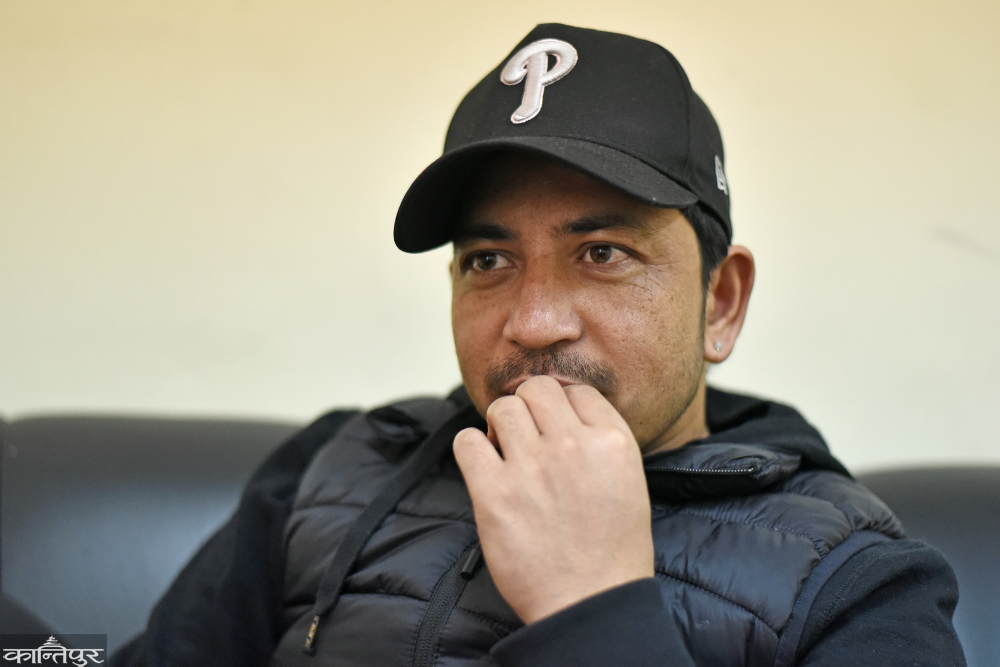
In her memory, mother Meenakumari was always a pioneer and worked hard. There was dire poverty at home, but she brought up her sons as comfortably as possible. She was alert, she thought, 'Sons should study hard', she was/is moody. She still sings - songs about foreign countries and strange songs like 'Sun Fall Ni Sailo Dai'. Rightly she says to her son, "Father, the song is in the village."
He left the village when he was 16 after SLC. It was a time when even those who read had to leave the village to study, those who did not read had to leave the village for employment. And, he left the village to study. After leaving the village, he used to talk about his brother in the phone conversation with his mother, what to do with the money sent by his father? He used to give advice. "My mother trusted me," he says. Much later, when returning to the village, mother and son would sit in front of the warmth of the fireplace after dinner and talk in the wee hours of the night. He says, "I am with my mother today, but there is little communication." Lack of subject or lack of time? Don't know.'
Son understood Nepali society by watching his mother's life cycle. And, his understanding is that to understand our art, scriptures, philosophy and religion, we need to understand the people of the village, literature and folk music are alive in the village. Villagers tell stories that no one has ever heard before. The son has seen the total suffering of his mother. Mainlo-Sailo saw the mother who was struggling with the pain of giving birth to her brother. He has seen the frustration of not having a father at home. Saput thinks - by leaving him free, his mother gave him a chance to understand the society. Meenakumari still keeps telling Saput, I left the floor open and that's it.' Saput snorts at the memory of a night when his mother cried bitterly. There was some money in the envelope. One Bharu note was stolen by him. After knowing that, the mother scolded her a lot and even beat her. And she cried in the dark night and said, 'Why are you bothering me like this?' Now Saput thinks, 'I shouldn't have done that.'
Sometimes the mother feels strange, seeing her own life. Suskee, Suskee, has come, "I arrived at the time! 'The first contest of life in Saph's life was about a mother, so received the first prize. She is aware of her song, Mainikamism. I will give suggestions from time to time. When the 'bullibilization of' Parwide 'vagal and' Par 'became a dispute over a scene of the scenery, and she was so bitter. "I didn't have many nights, killing the son," she said. At that time, Saput told, 'Did you starve to choose?' & Nbsp;
had been discharged from my mother's hospital just the day before the dialog. Shipping was also detuced in this year-throe in the wine, which was falling down the city's temperature. Even on the long day of terrorized biography of fever, Menajakumhari was crushed in the rectangle. Saput son. She was asked when she was bedful, as she was saying - Sheweb! How is you doing? Even if 'OK,' is not the case with the children of offspring. They will always be children. 'Sapuut says. & Nbsp; In view of the Sepaq, the views of the
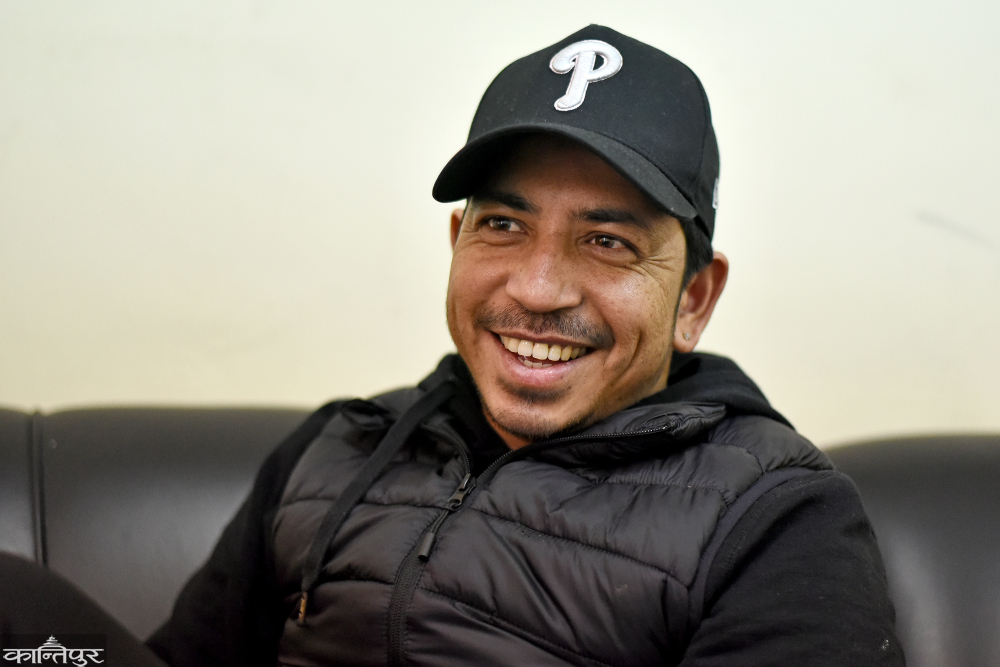
are not only his only-morrow. "The mother who lives, has survived," the package of the synonyms, "is not the definition of the synonyms, love, pain. '" Are the definition of sensations. . Mother has different dimensions, just as love is unlimited dimensions and definitions. Only writing only by writing in the world's threshing floor, the mother is also federal, the sensation of such a great, mysterious, sensation, which cannot be seen from the same dimension. "The mother cannot be seen only from mental, socio-aspects," Sepubut says. Writing is not written, understanding incomprehensible is incomprehensible. '& Nbsp;
Mianakimari's world is the real picture of the Nepali woman. There seems to be there - Poor picture of the poor, the palp picture of the poor, doted society, doting out the responsibility, ethnic and class discrimination. Saput thinks that in all the suffering of the world is in the platie. 'Spending stories a day I will hear the story of her life and hear the story of her life,' Sashaty's confidence, 'I can get rid of hundreds of story. Because my mother has experienced the story. '
Pictures: A Grand Dhakal / Kantipur
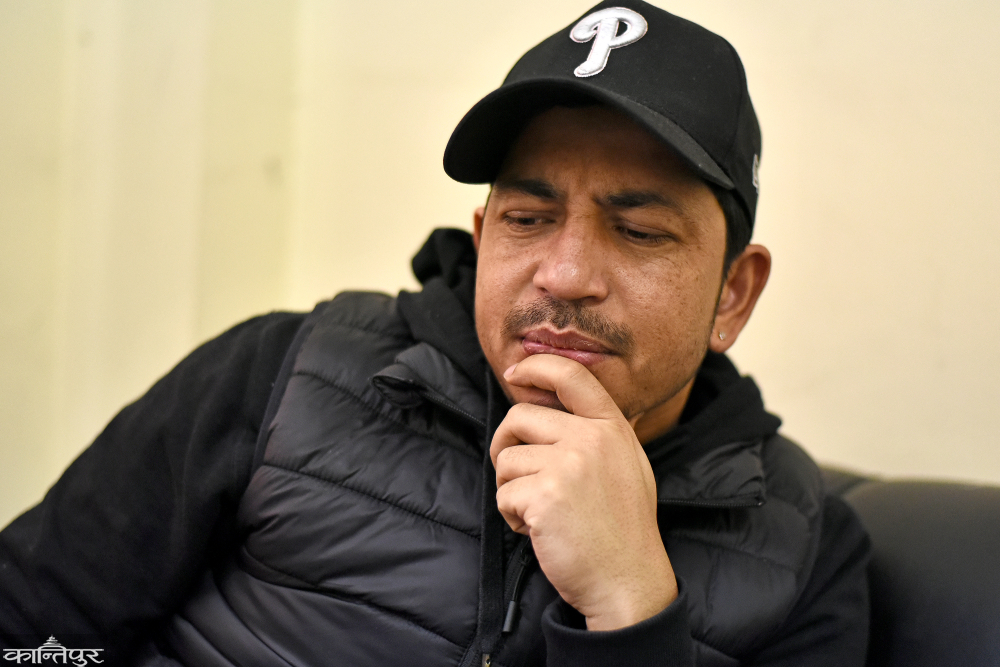
 प्रकाशित : माघ २३, २०८० ०९:४५
प्रकाशित : माघ २३, २०८० ०९:४५

 २१.१२°C काठमाडौं
२१.१२°C काठमाडौं









